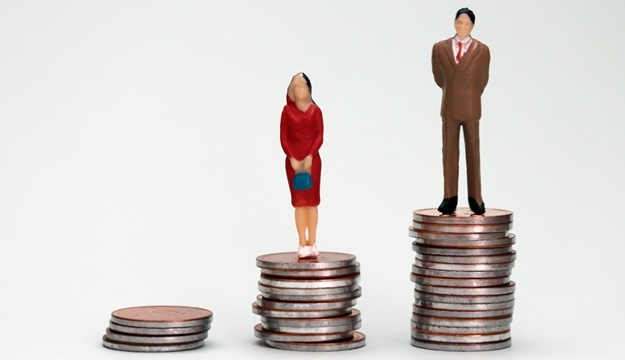
- Fixed gender roles contribute to a stubborn pay gap – this is widely
reported. - What’s less commonly known, however, is that this impacts men as well.
- Households that alternate breadwinner roles can maximise their earnings
over a lifetime, minimising the impact of pay disparities between genders, the author writes.
Every year, Women’s Day rolls
around, and every year the same topics have a moment in the spotlight:
gender-based violence (GBV), the gender pay gap, and the progress women are
making in the endless pursuit of ‘having it all’ while trying to balance career
and family life.
These are conversations we need
to be having more often. President Cyril Ramaphosa recently called GBV South
Africa’s “second pandemic”, while in the world of work, women still earn up to 35% less than men for the same job.
Another part of the problem is
the narrow definition of ‘having it all’. What’s meant to be empowering for
women is actually steeped in patriarchal notions that a woman’s role is to have
and nurture children (and sure, you can work too, if you like).
Here’s a 2020 newsflash: not all
women want or can have children. Having it all can mean financial freedom, it
can mean staying single and child-free or finding the perfect work-life
balance. It should mean whatever any individual woman wants it to mean.
Alternating careers makes better
financial sense
For those women juggling careers
and families, ‘having it all’ has often meant doing it all. And the pressures
from both sides mean many feel guilty they’re doing neither job as well as they’d
like.
The double burden of
responsibility is a well-documented reason for the stubbornly persistent gender
pay gap.
What’s less talked about, or
known, is that traditional patriarchal family structures – where women’s
careers take a backseat – don’t actually make sense from a financial point of
view. Having one person as the main breadwinner limits a couple’s full earning
potential and creates dependence on one career; a risky strategy in a volatile
job market.
According to Abu Addae,
co-founder and CEO of LifeCheq, a much better option is an alternating career
strategy, where each partner takes turns focusing on their career and being the
homemaker – switching it up every few years. There are male colleagues who’ve
chosen this more unconventional path in recent years and, unsurprisingly, he’s
run the numbers.
“Couples who share home and
work roles more equally can earn 50% more over the course of their lifetimes,
compared with couples where the man is the sole or main breadwinner. The simple
reason is that there is a lot of upside for the woman’s career capital in an
alternating strategy.
In other words, the little bit
the man loses is far offset by what the woman gains in terms of her income.
From a cold, hard financial point of view, patriarchy doesn’t pay.”
Research from the last few years
suggests more South African women are taking up the sole
breadwinner role. While this is great for advancing women’s careers
and a challenge to patriarchal values, a more equal sharing of the load still
makes better financial sense.
(If you’re wondering where this
leaves single working moms, Addae’s calculations indicate, somewhat
surprisingly, that they usually end up better off financially than coupled up
women who rely on their partners’ incomes.)
Men have as much to gain as women
Patriarchal values aren’t just
holding women back, they’re damaging men too. Iceland has been
ranked number one in the world for gender equality by the World Economic Forum
for more than a decade.
You might think this spells a
worse deal for men, but in fact, Icelandic men enjoy the highest life
expectancy in Europe. The trend holds true in other countries where men and
women enjoy greater equality. There are real upsides to men spending more time
as caregivers – and not just for their partners or children. More men
recognising these wellbeing and financial gains would do a lot to reduce the gender
pay gap.
For alternating career strategies
to become normalised, companies need to do more to support and enable the role
of men as homemakers. A deeper question is whether society as a whole is ready
to shift entrenched gender expectations. Statistics on shared parental leave
suggest we have some way to go. Japan, for example, has the most generous
shared parental leave allowance in the world, at 30 weeks of paid leave for
fathers. Only 1 in 20 men actually use it. Policy
changes alone won’t be enough.
If we want true equality for
women, at work and at home, we need men to step back in the workplace and to
step forward as partners, husbands and fathers. As women, we also need to value
our careers more, even if we do want a family. The patriarchal values we’ve
inherited from previous generations no longer serve us in this day and age.
This is not something men should fear, but embrace.
Kutlwano Sello is Content and
Community Engagement manager at LifeCheq, a career and life planning company for
South African professionals and business owners. Views expressed are the author’s own.
